Search Images
Browse Content (p. 1507)
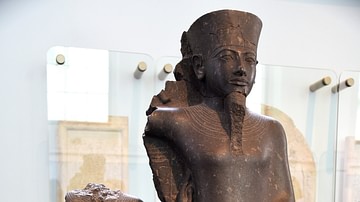
Image
King Horemheb with Amun-Ra
King Horemheb with Amun-Ra, probably from the temple of Amun-Ra at Thebes, Karnak, possibly usurped from Tutankhamun (c. 1336-1327 BCE), 18th Dynasty, c. 1323-1295 BCE. The inscriptions identify the headless king as Horemheb and the larger...
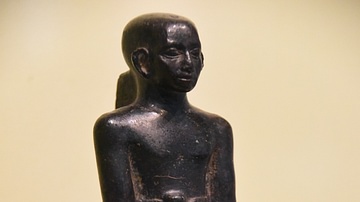
Image
Statue of Nebhepetra
This serpentine statue comes from the lost tomb of Nebhepetra. It shows him in prayer, with arms extended. The long inscriptions on his robe and on the back pillar reveal an extraordinary career as a lector and a guard. 12th Dynasty, probably...

Image
Boat of Queen Mutemwia
This sculpture represents a sacred boat on a sledge. It included a seated figure of Queen Mutemwia, wife of Thutmose IV. Only her legs and right hand remained intact, but part of the head is also in the British Museum. Mutemwia clasps a looped...
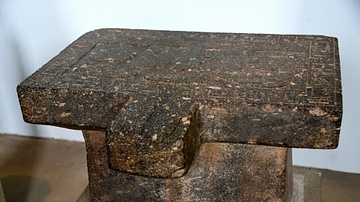
Image
Offering Table of Nesptah
This offering table, from a temple or a tomb, bears a depiction of a mat laid with food offerings; loaves, water vessels, and fowl. Ritual libations were poured over the images to purify them for the magical consumption by the owner's spirit...
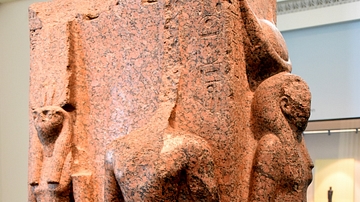
Image
Sculpture of King Thutmose III
This is a rare example of an Egyptian temple sculpture, in which the figures face in 4 different directions. This suggests that it stood in the middle of a room. Three persons are represented twice. King Thutmose III (now headless) stands...
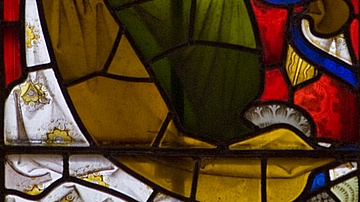
Image
Moses Recieves the Law
Detail from the west window of Bath Abbey showing Moses receiving the tablets of the Commandments from the hand of God.

Image
Creation
A beautiful series of windows depicting the Genesis account of Creation in the church of Christ the King, Gordon Square in London.
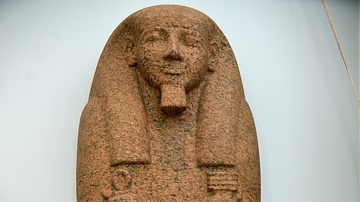
Image
Sarcophagus Lid of Pahemnetjer
The owner of this sarcophagus was a high-priest of the god Ptah in the city of Memphis. The crossed arms, the emblems he holds, and the rest of the decoration partly repeat those of the sarcophagus of Setau. From the tomb of Pahemnetjer at...
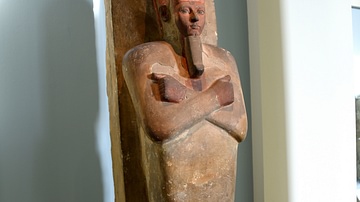
Image
Osiride Statue of Amenhotep I
The King is shown in the pose, beard and robe of Osiris, the god of rebirth. This expressed a wish for eternal sed festivals: jubilees in which Amenhotep was to be rejuvenated. The King wears the double crown of Upper and Lower Egypt. Amenhotep's...
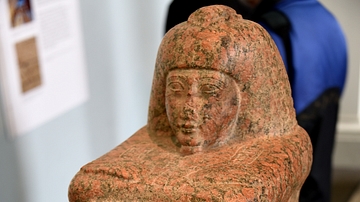
Image
Block Statue of Ankhrenepnefer
The owner was "a great commissioner of the palace" for Osorkon II, whose cartouches of birth and throne names appear on the upper arm. The shrine he presents contains a figure of Atum, the creator god of Heliopolis. The statue stood in the...